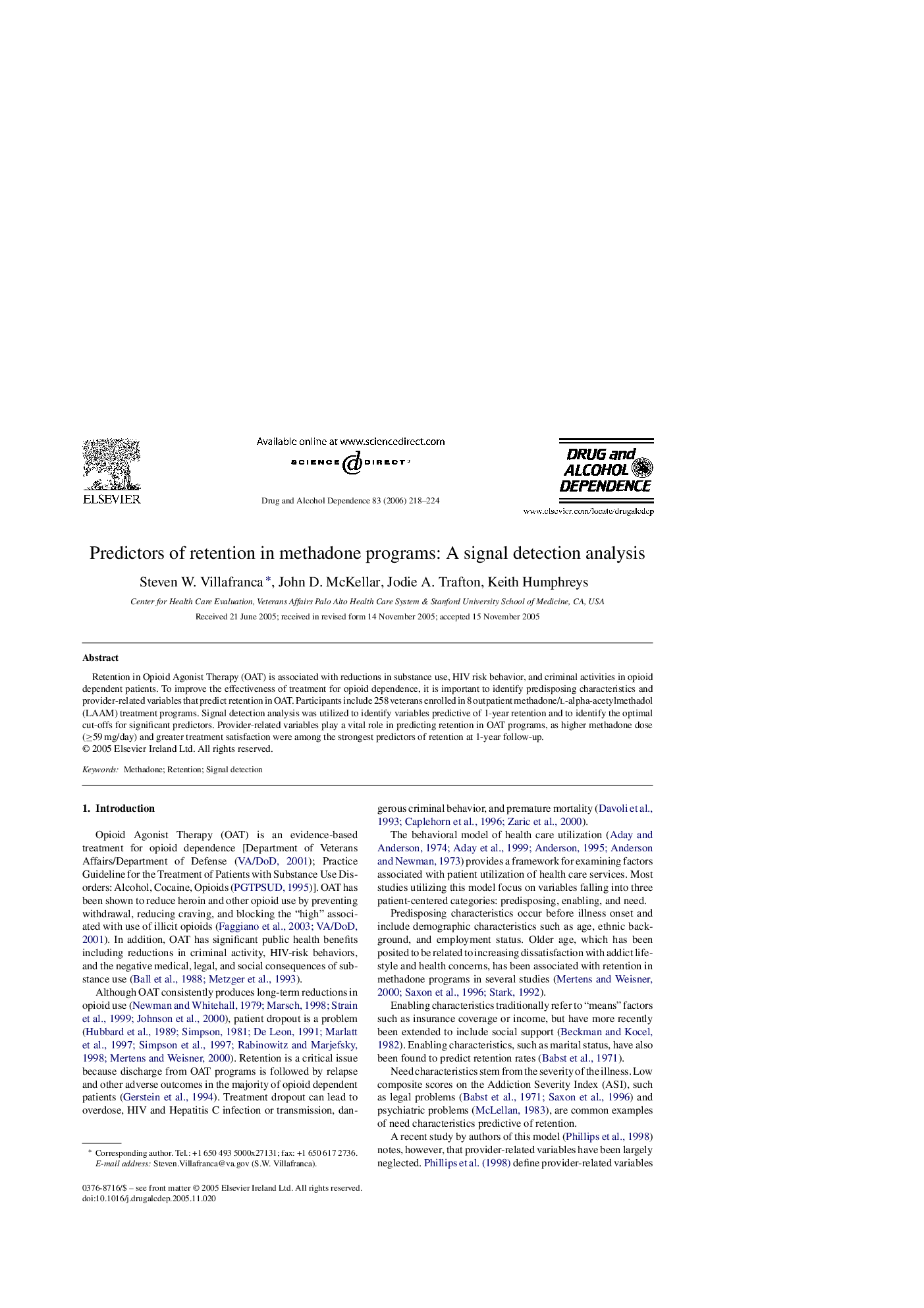| Article ID | Journal | Published Year | Pages | File Type |
|---|---|---|---|---|
| 1071478 | Drug and Alcohol Dependence | 2006 | 7 Pages |
Retention in Opioid Agonist Therapy (OAT) is associated with reductions in substance use, HIV risk behavior, and criminal activities in opioid dependent patients. To improve the effectiveness of treatment for opioid dependence, it is important to identify predisposing characteristics and provider-related variables that predict retention in OAT. Participants include 258 veterans enrolled in 8 outpatient methadone/l-alpha-acetylmethadol (LAAM) treatment programs. Signal detection analysis was utilized to identify variables predictive of 1-year retention and to identify the optimal cut-offs for significant predictors. Provider-related variables play a vital role in predicting retention in OAT programs, as higher methadone dose (≥59 mg/day) and greater treatment satisfaction were among the strongest predictors of retention at 1-year follow-up.
